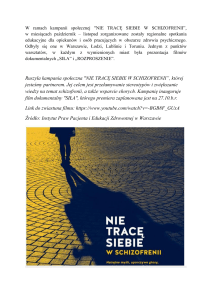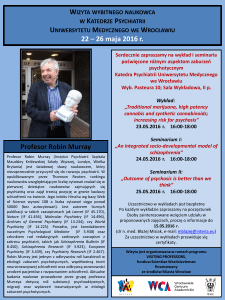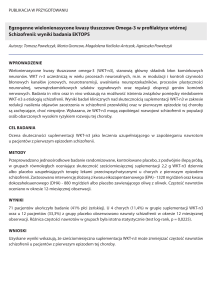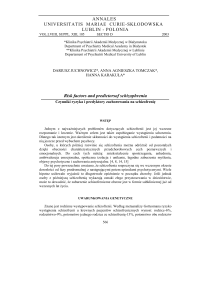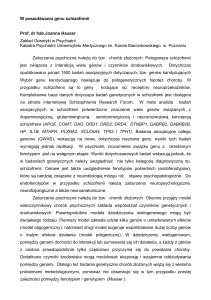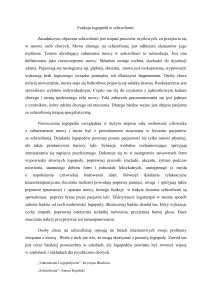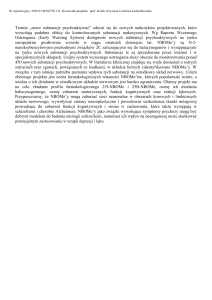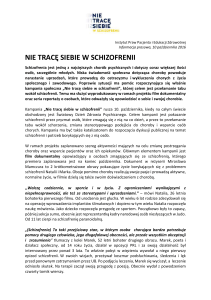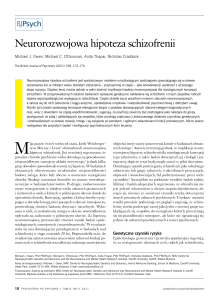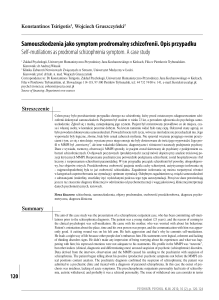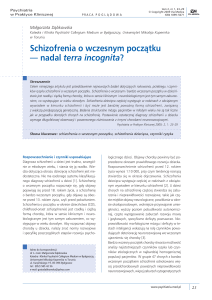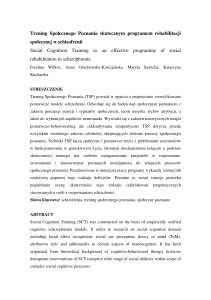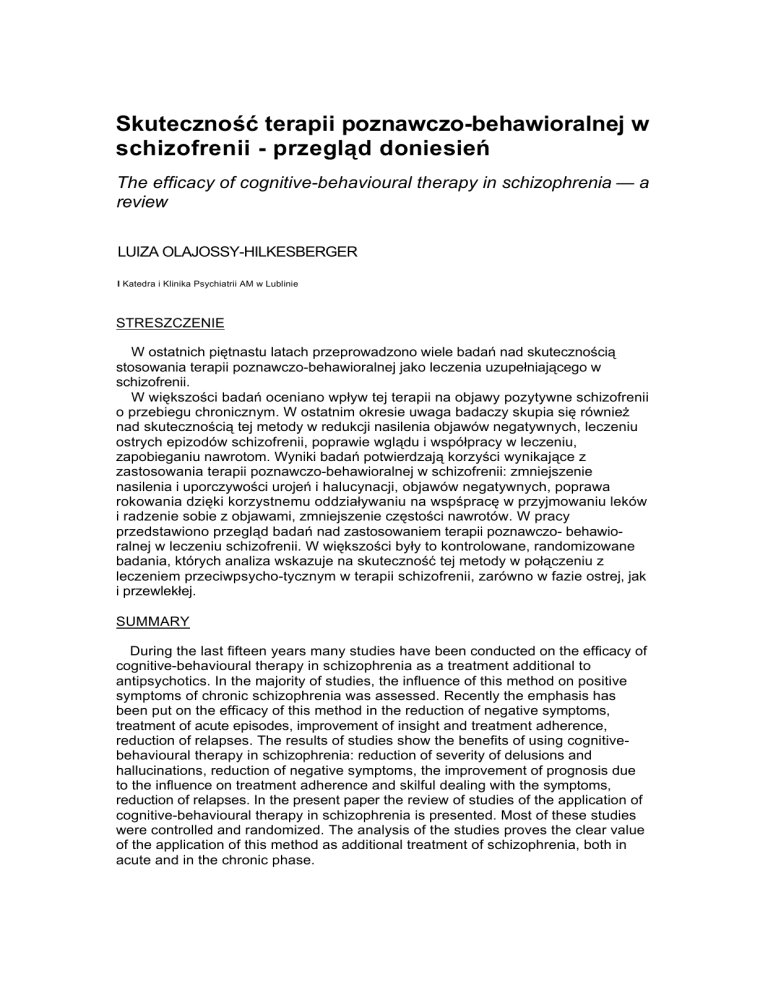
Skuteczność terapii poznawczo-behawioralnej w
schizofrenii - przegląd doniesień
The efficacy of cognitive-behavioural therapy in schizophrenia — a
review
LUIZA OLAJOSSY-HILKESBERGER
I Katedra i Klinika Psychiatrii AM w Lublinie
STRESZCZENIE
W ostatnich piętnastu latach przeprowadzono wiele badań nad skutecznością
stosowania terapii poznawczo-behawioralnej jako leczenia uzupełniającego w
schizofrenii.
W większości badań oceniano wpływ tej terapii na objawy pozytywne schizofrenii
o przebiegu chronicznym. W ostatnim okresie uwaga badaczy skupia się również
nad skutecznością tej metody w redukcji nasilenia objawów negatywnych, leczeniu
ostrych epizodów schizofrenii, poprawie wglądu i współpracy w leczeniu,
zapobieganiu nawrotom. Wyniki badań potwierdzają korzyści wynikające z
zastosowania terapii poznawczo-behawioralnej w schizofrenii: zmniejszenie
nasilenia i uporczywości urojeń i halucynacji, objawów negatywnych, poprawa
rokowania dzięki korzystnemu oddziaływaniu na wspśpracę w przyjmowaniu leków
i radzenie sobie z objawami, zmniejszenie częstości nawrotów. W pracy
przedstawiono przegląd badań nad zastosowaniem terapii poznawczo- behawioralnej w leczeniu schizofrenii. W większości były to kontrolowane, randomizowane
badania, których analiza wskazuje na skuteczność tej metody w połączeniu z
leczeniem przeciwpsycho-tycznym w terapii schizofrenii, zarówno w fazie ostrej, jak
i przewlekłej.
SUMMARY
During the last fifteen years many studies have been conducted on the efficacy of
cognitive-behavioural therapy in schizophrenia as a treatment additional to
antipsychotics. In the majority of studies, the influence of this method on positive
symptoms of chronic schizophrenia was assessed. Recently the emphasis has
been put on the efficacy of this method in the reduction of negative symptoms,
treatment of acute episodes, improvement of insight and treatment adherence,
reduction of relapses. The results of studies show the benefits of using cognitivebehavioural therapy in schizophrenia: reduction of severity of delusions and
hallucinations, reduction of negative symptoms, the improvement of prognosis due
to the influence on treatment adherence and skilful dealing with the symptoms,
reduction of relapses. In the present paper the review of studies of the application of
cognitive-behavioural therapy in schizophrenia is presented. Most of these studies
were controlled and randomized. The analysis of the studies proves the clear value
of the application of this method as additional treatment of schizophrenia, both in
acute and in the chronic phase.

